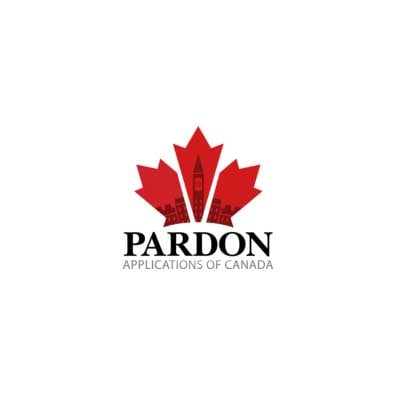
Pegah Memarpour, freelance columnist for Pardon Applications of Canada, explores recent legislative changes to the eligibility criteria for a pardon, now known as a “record suspension”.
Over recent years there has been a significant amount of attention given to the plummeting pardon application rates, and some major changes to the laws surrounding them. This has left many Canadians wondering why they should apply for a pardon (or record suspension), how accessible pardons have become, and what the best way to go about receiving a pardon would be.
Applying and receiving a pardon is still an important and vital step in the process of moving past having a criminal record. A pardon is notably the last step for persons who have been convicted of a crime (or crimes), and who wish to move forward with their lives in a law abiding, positive way.
For the approximate 4 million Canadians with a criminal record, however, recent media coverage has suggested that this task has been made much lengthier and more difficult over the last few years. Some of this coverage has been factual, some has not.
The Facts
Since June 2010, there have been some significant changes to the pardon application process. For one, Bill C-23A has resulted in extended ineligibility periods for certain offenders, additional inquiries, new and exhaustive investigations by staff, and additional review time for some applications.
In 2012, additional changes were made to the pardon process with the introduction of Bill C-10.
“There is no debate that the changes over the last years have had some significant and limiting repercussions, however, applicants should remember that receiving a record suspension still remains very possible.”
The act’s new legislations mandated several changes in respects to pardon applications:
- The term “Pardon” was changed to “Record Suspension”;
- Those with summary offence convictions (e.g., drinking and driving, minor assaults, property damage), were now required to wait 5 years, instead of 3, after all restitution (jail sentence, fines, probation etc.) is completed, to apply for a record suspension;
- Those convicted of an indictable offence (e.g., aggravated assault, burglary, drug trafficking) were required to wait 10 years, instead of 5, after all restitution (jail sentence, fines, probation etc.) is completed, to apply for a record suspension;
- Individuals convicted of a sexual offence involving a child, and those convicted of 3 or more indictable offences with a prison sentence of two years or more, were no longer eligible to apply for a record suspension (with certain very limited exceptions);
- The government’s submission fee for completed pardon applications was increased from $150 to $631 – this does not include fees to complete the application process.
Review application processing fees of a Canadian Pardon (record suspension).
Consequently, pardon application rates decreased by almost half after Bill C-23A was amended, dropping to just under 25,000 applications per annum, and again that number dropped after Bill C-10. The significant drops over the last few years has caused an increased amount of concern for many Canadians seeking to take this step.
“There is no debate that the changes over the last years have had some significant and limiting repercussions, however, applicants should remember that receiving a record suspension still remains very possible.”
In 2012, the Parole Board granted and issued record suspensions at an approval rate of over 90%! This suggests, that though there is room for concern, the Parole Board is still granting record suspensions at a high rate.
Additionally, the Parole Board also acknowledges that pardons and record suspension applications are quite successful. For example, 96% of pardons and record suspensions received since the program’s inception in the 1970’s continue to be in force today – meaning that the majority of recipients are living and have lived “crime-free” within society.
It is also reported that wait times for record suspensions range from 6 months to 2 years based on the offence. For all persons who applied prior to March 2012 – under the old system there is a 22,300 application backlog. However, new applications starting today are not affected by a backlog.
What’s the First Step?
How can Canadians with a criminal record ensure that they remain part of the 90 percentile receiving record suspensions?
The first step, is to not become discouraged. The application process can be somewhat daunting and require some advanced planning. However, by ensuring that you have all the information and taking every measure to complete your application properly (e.g., receiving help from an accredited firm) one can guarantee a significantly higher rate of success with one’s application.
Second, it is important to ensure that you are fully eligible before applying. Pardon Applications of Canada offers a free qualification email report – take advantage of it.
Find out for free if you qualify for a record suspension.
To successfully receive a record suspension, one must have fully completed their sentence (including parole), paid any fines, served the required waiting periods, and demonstrated that they are now a law-abiding citizen.
Although rates have been dropping over the years and some major changes have been made, Canadians are still encouraged to continue applying for and looking into having their record suspended. This process has many advantages – it opens up employment opportunities, access to volunteer positions, ensures peace of mind, and allows those with criminal records to fully move forward with their lives.
Pegah Memarpour is a freelance columnist for Pardon Applications of Canada, the nationwide processing firm for Canadian Pardon (Record Suspension) & U.S. Entry Waiver applications. The opinions expressed are that of the author and do not necessarily reflect those of Pardon Applications of Canada. For a list of statistical references used in this article, or more information on Pardon Applications of Canada, call 866-383-9744 or email [email protected].
PAC’s Ongoing Service Commitment
Email [email protected]
Schedule a Call https://www.pardonapplications.ca/schedule-a-call/
My Account Dashboard https://dashboard.pardonapplications.ca/


